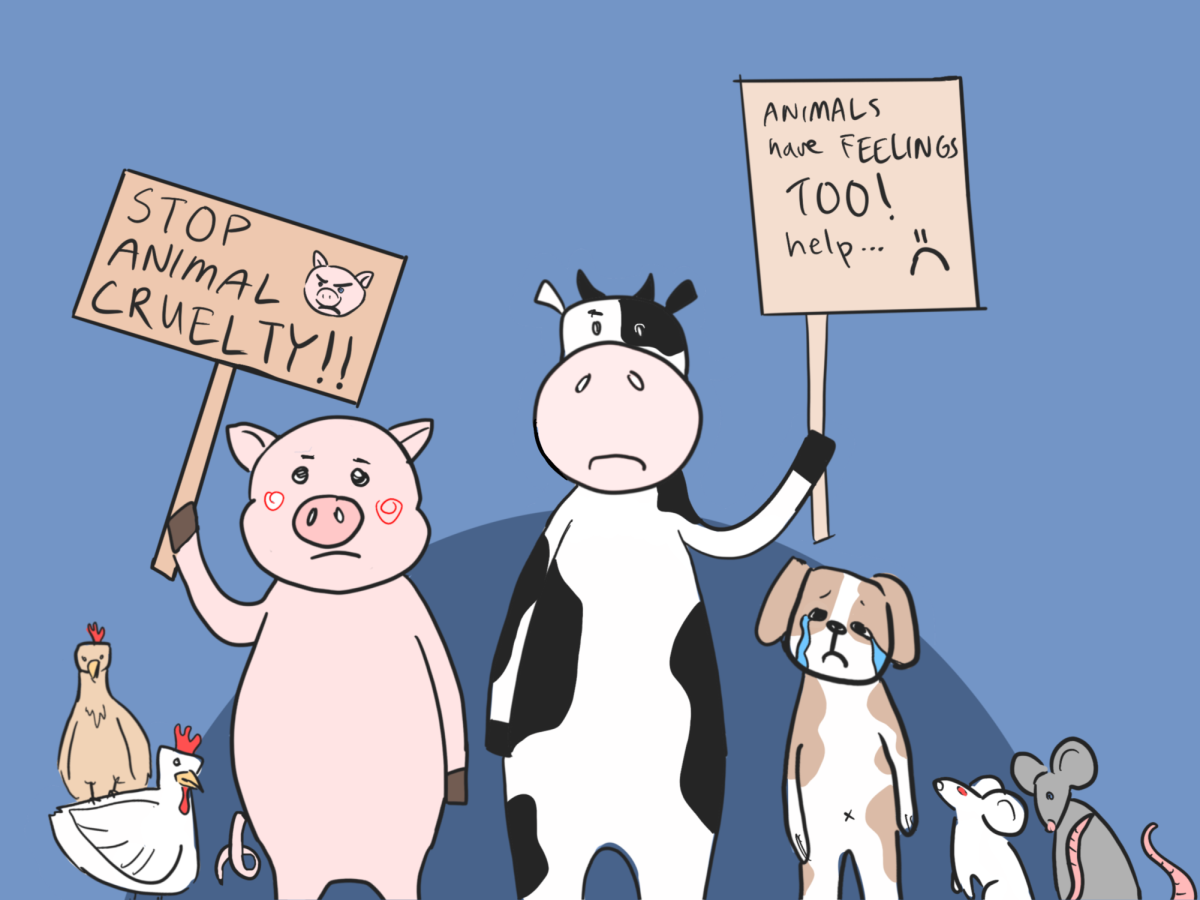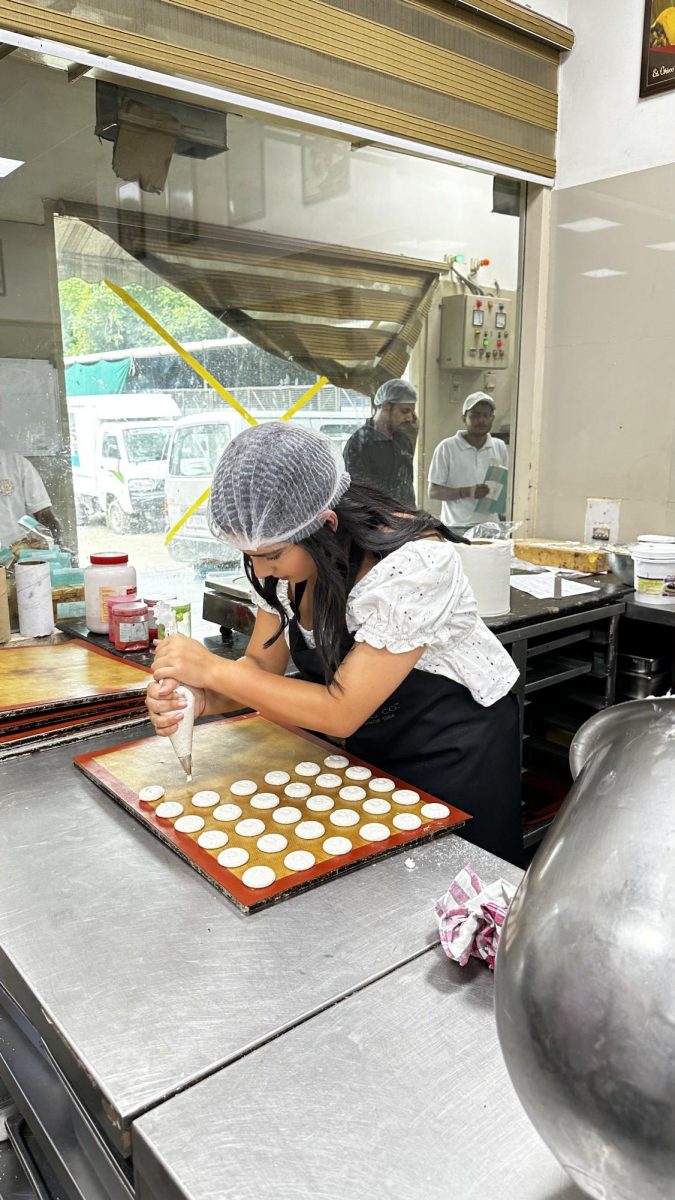Editor’s note: In order to elicit more honest responses, all sources were granted anonymity and are referred to by grade level and gender.
Students started with two words — “I wish” — to convey how their ideal parenting styles were different from the one their parents’ raised them with. The Falcon recently explored these differences by interviewing eight students — a boy and girl from each grade.
I wish: They were more involved in my life
Most said they wish their parents paid more attention to their internal struggles and played a more active role in their lives.
“I wish that they knew about my extracurriculars,” a freshman girl said. “They just kind of financially support me and they don’t really know what’s going on. I wish they would show up.”
One instance where she felt the absence of her parents was during her team’s last competition of the season. To her disappointment, her father couldn’t make it because he “didn’t feel like it” and her mother decided to not attend “just because.”
“[A common excuse they give is] ‘I’m tired’ or ‘I’ve done a lot today, I don’t want to go out anymore,’” the freshman said.
According to Psychology Today, although many parents lead busy lives in order to financially support their children, being present in the activities important to their child, especially during the teenage years, is critical for development since parents influence healthy decision-making. Parents who show up for their children’s activities help them feel safe, seen and secure from birth through early adulthood, the article says.
However, even when parents are found to be present in students’ lives, numerous noted how their parents are often unable to separate their work life from their personal life, resulting in strained family dynamics. According to a study published in the National Library of Medicine, constant stress from work can lead to dissatisfaction with both family and work life. Those in the study who could balance their family and work life well were able to maintain better mental and physical health for themselves and their children compared to those who could not.
Many students said something as simple as taking the time to sit down and have a meaningful conversation could make all the difference.
“I wish they would give me more undivided attention because they’re really busy with work,” a junior boy said. “And because they work from home sometimes, it’s even more embedded into their lives than before.”.
Although they plan to eat dinner together everyday with a no-screen policy, he has often noticed his family is distracted and not mindful of their time together.
A senior girl put it this way: “I wish they could separate work and personal life, spending more time with me and giving their full attention. If something goes bad at work, [the anger] comes into the house and then if I do something, it’s not necessarily what I did that [makes them annoyed].”
Although being present is crucial, it’s only the first step — when parents fail to have open conversations with them, the eight teens said they feel as though they aren’t truly being heard.
“[I wish] they could talk to me more. I think they notice [my mood changes] but they don’t really ask the right questions [to understand how I’m feeling],” a sophomore girl said.
Discouraging open discussion leads to the inability for parents to grasp their children’s actual emotional state and forces them to feel as if they need to handle issues alone.
“I wish they knew that I struggle with a lot of stuff and despite me seeming like I got a handle on it, I actually do not have a handle on it at all,” a senior boy said.
An article by the United Nations Children’s Fund (UNICEF) argues that being involved in children’s lives is more than just being present. They emphasize the value in validating and taking the time to understand a child’s feelings. The article claims that “if we [as parents] don’t listen properly, we risk making them feel as though we are brushing off their concerns and invalidating their feelings.”
UNICEF suggests that parents ask their children open-ended, clarifying questions — such as “could you explain what you mean by…” or “why do you feel you got upset when …” — to gain greater insights on how their children feel.
I wish: They paid deeper attention
For other students, the ideal version of parenting involves parents taking a step back to acknowledge the students’ well-being and putting more confidence in their decisions.
“I’m happy, you know? I think they think I’m unhappy and I drag myself a little too hard,” the junior boy said. “And I think sometimes they blame themselves for that. They shouldn’t.”
Students told The Falcon they wanted to find balance in their relationship, hoping parents would understand when they overstep boundaries. According to Teen Rehab, helicopter parents are those that take a “highly active interest” in their children’s lives, even to the point where they overmanage.
Teen Rehab states that children with helicopter parents are 40% less likely to drink and have a 43% decrease in marijuana use. But despite these benefits, there are fewer opportunities for children to take responsibility for their actions, leading to dependency on others during problematic encounters and a lack of empathy for their decisions.
The senior boy said: “[If I were a parent], I would give my kid more freedom at a younger age and let them fall and get hurt so they can kind of figure stuff out on their own. And then once they’re really down, always make sure to help them out.”
I wish: They communicated openly
Additionally, instead of jumping to conclusions and putting up a barrier, students suggest that parents open up and communicate how they feel in order to bridge their generational and cultural gap.
“I wish they weren’t so awkward about talking about their feelings because I feel like my siblings and I [can’t] go to them about anything because it’s just not going to be a comfortable conversation,” a junior girl said. “Communicating in a way that is more sensitive without worrying about it being an awkward conversation [would be my ideal parenting style.]”
Having a stronger support system was a sentiment echoed by numerous students, wishing they could have relied on their parents, instead of keeping their emotions to themselves.
“[I wish they would encourage] being more open about talking about your emotions,” the senior boy said. “You’re [often] discouraged from ever talking about what’s going on internally and so I feel like if that narrative was changed, [I would be a] little more open towards them.”
In his household, he was more influenced in the development of his character by friends and more distant relatives like cousins than his own parents.
Experts say parents’ negative reactions and dismissal of their child’s emotions is often a reflection of the way they were raised themselves. A pervasive generational discrepancy, particularly with the current generation of parents that fall into the “Gen X” age group, is an aversion toward displaying emotions — according to students, “Gen X” parents were raised to keep their feelings to themselves and bring the same style to their parenting.
Data gathered by the National Library of Medicine on the parental socialization of emotion concluded that when parents suppress theirs and their childrens’ emotions, they directly harm their childrens’ ability to communicate and socialize.
These students urge their parents to reach out and offer extra support regularly as reassurance that they’re willing to listen and talk. This helps establish a line of communication so that, instead of parents having to pry at the root of the problem, they can wait for their children to feel safe enough to share their struggles at their own pace.
Students reflect on why they admire their parents’ parenting style
Students with parents who encourage effective communication are grateful for it and believe that it has fostered a more comfortable environment that they find hard to fault. In fact, they plan to take inspiration from it when they raise their own children.
“I would pretty much go for what parents do for me. They are strict at times, but very supportive,” a freshman boy said.
Students struggled to find even one flaw of their parents when they realized that open communication solved most of their arguments successfully and left the dynamic between them healthier.
“I think my parents really put an emphasis on communication and working with each other. I think they’re very compassionate and they are willing to hear what I have to say,” a sophomore boy said.
His parents acknowledge that he is more of a self-motivated individual and took a step back to let him hold himself accountable and give him the freedom to succeed, while still supporting him in all his endeavors and encouraging him to “stay true to himself.”
He recalled when he was in eighth grade and started losing interest in robotics — an activity he had put lots of time and effort into since elementary school — his parents didn’t pressure him to follow through with it heading into high school. Instead, they let him make his own choice and allowed him to drop the extracurricular to follow what he was truly passionate about like debate and band.
The two words — “I wish” — uncovered the unfulfilled desire students have for a different parenting style than the one they have known. Of the eight students interviewed, only two said they are satisfied with their relationships with their parents.
Although parenting styles varied from family to family, the Falcon’s interviews revealed that the only way students feel content with their parent-child relationships is through healthy and open communication; it is what these students, along with many of their peers, need in order to feel safe, understood and confident in navigating their challenging teenage years.































